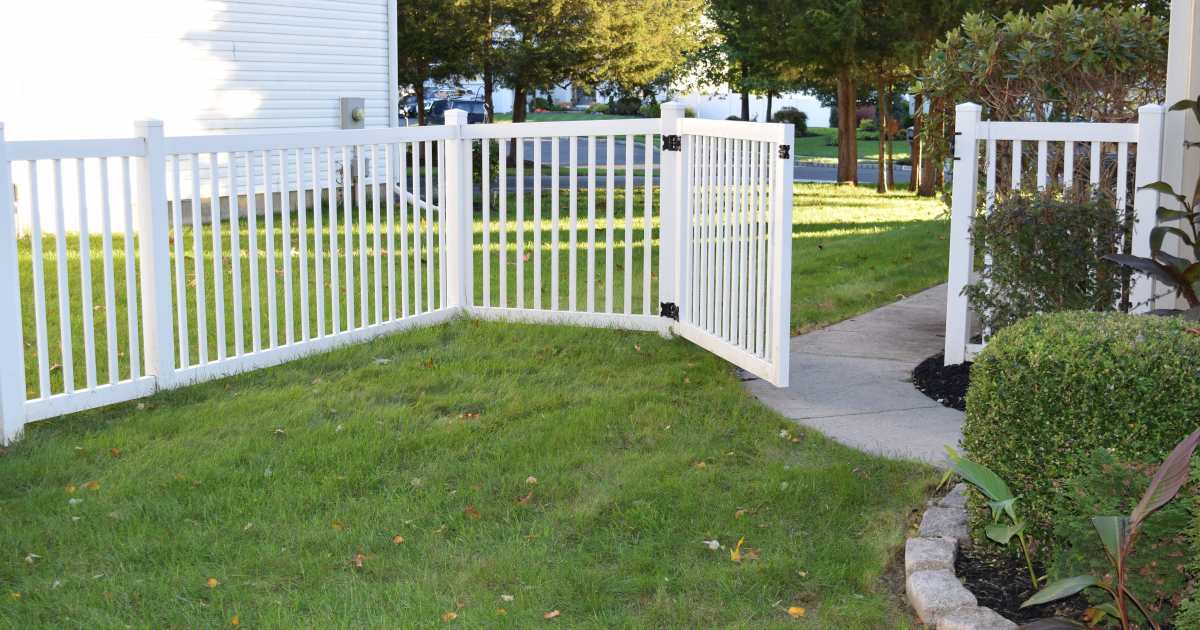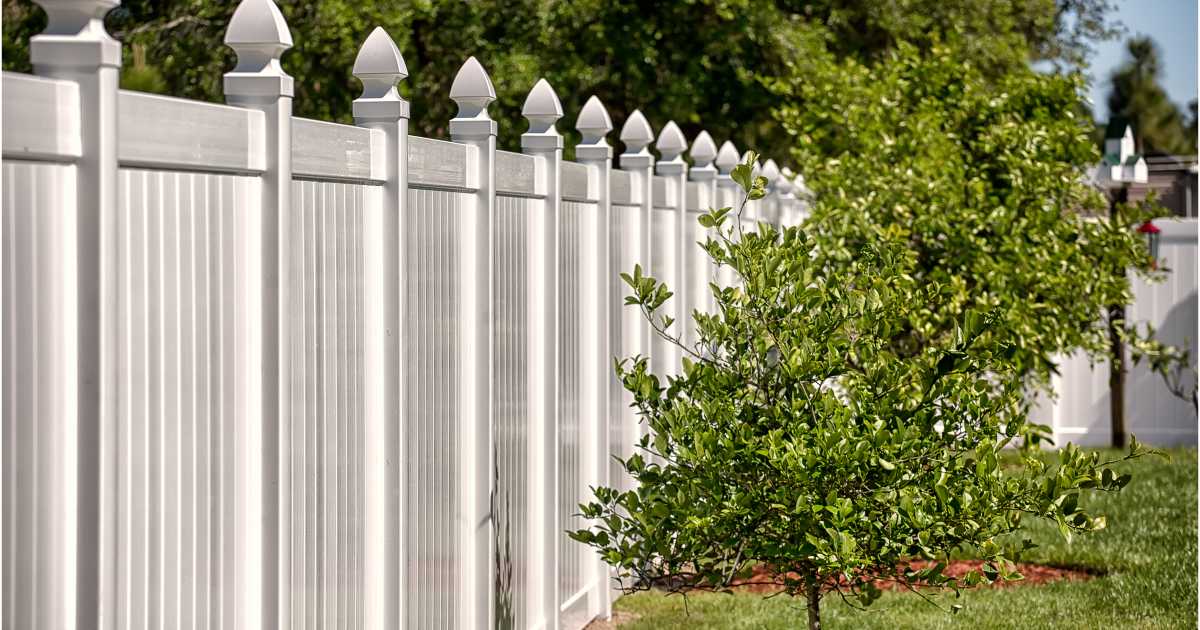Vinyl fencing offers many qualities that it a great choice for homeowners. With so many choices available finding the best vinyl fencing option can be difficult. So before you choose a vinyl fence company in Columbus let’s review all the things you should know.
Don’t Buy Vinyl Fence at Big Box Stores
You can find vinyl fencing at Lowe’s, Home Depot, and the other big box hardware stores. Their fence inventory will often be affordable since these stores serve consumers whose primary interest is low price. However, their vinyl fencing products lack quality in several key areas:
- thickness of vinyl walls
- vinyl posts need wood insert
- not enough (or any) UV inhibitor added (Titanium Oxide)
- not enough impact modifier added
Also, you won’t benefit from the advice of an experienced fence installer. At a big-box store you really have no idea of the expertise of your sales person. If you want a strong and durable vinyl fence look for a company that specializes in vinyl fencing. They can present multiple options so you can choose vinyl fencing that fits your home and budget.
Check the Manufacturer’s Warranty
So many vinyl fence manufacturers offer a “lifetime warranty”. But what does that really mean? Not much, if the company no longer exists. So there is a real benefit to only buying fencing products from companies with a long established track record.
How long does the warranty last?
The “lifetime” in a lifetime warranty usually refers to the lifetime of the original purchasor(s). A limited warranty will limit coverage to a specified period such as 20 or 30 years. Warranty coverage for the same fence will be less for commercial properties as opposed to a residential homeowner.
Can the warranty be transferred?
Some (but not all) vinyl fence manufacturers allow their warranty to be transferred to a new owner of your property. A common limitation will be that the warranty can only be transferred once. Also, the warranty will usually be limited to a set number of years once transferred. A fence still covered by a warranty can be an advantage when selling your home.
What does a fence warranty cover?
So a vinyl fence warranty will be limited to manufacturing defects. This would be problems such as discoloration, flaking, blistering, cracking, splitting, sagging or bowing. The manufacturer will not cover defects in installation. You will have to pursue your fence contractor to address any problems with your fence installation.
A fence warranty will not cover “Acts of God” such as storms, a falling tree etc. Also, physical damage from impacts or improper cleaning will not be covered.
Virgin Vinyl vs Recycled Vinyl Fence
Polyvinylchloride, or PVC, is the material used to manufacture vinyl fencing. You will encounter two types of PVC that are used to make fencing and similar products. One of those will be “virgin vinyl”. This is freshly produced PVC.
The other option is “recycled vinyl”, which sounds like PVC created from the items in your recycle bin. However, recycled PVC is not really a recycled product in the way most consumers think.
Recycled vinyl is virgin vinyl created by combining scraps created during the manufacturing process. So the only difference is buying a fence made from recycled vinyl is that the virgin vinyl did come from a single source. You will really not find any significant differences in durability from choosing recycled vinyl.
Check the Thickness of Vinyl Fence Components
So manufacturers often need to produce “economy” products that will be sold at a lower price point. One of the main ways to lower production costs is to use less PVC material during manufacturing. This results in vinyl fence components that come in smaller sizes with thinner walls. A smaller thinner product will be less durable and will be more likely to break from impacts. Note that manufacturers do not cover impacts under their warranties.
You can avoid the cheaper products by not shopping at the big box stores, as discussed above. Also, look for “professional” or “commercial” grade vinyl fencing. Investigate product specifications and look for a minimum .135″ thickness for a five-inch vinyl post.
Related Posts about Vinyl Fencing

How to Choose the Best Vinyl Fence
